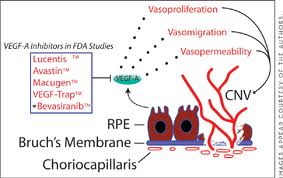A study at Brigham and Women’s Hospital in Boston has shown that nutrition impacts eye health. Over a stretch of 10 years Dr. William Christen followed a group of 35,551 health professionals age 45 and older. They provided him with detailed information about their dietary habits and vitamin supplements-they were permitted to take multivitamin but were requested not to take vitamin A, vitamin E or beta-carotene. None of them had cataracts in the beginning of the study, but 2,031 did develop cataracts during the follow up period. Dr. Christen and his team analyzed the data and found that those individuals who were the highest consumers of carotenoids- individuals with an intake of 6,617 mcg of lutein and zeaxanthin- were 18% less likely to develop cataracts than those who consumed only 1,177 mcg per day. Also, the group that consumed higher amounts of vitamin E (intakes of about 262.4 mg per day) was 14% less likely to develop cataracts. Lutein is a substance that is found in high concentration in eye tissue. It is readily available in many foods, such as green and yellow vegetables, yellow-fleshed fruit and in egg yolks.
New research from the National eye Institute in Baltimore has also confirmed the benefits of carotenoids for healthy eyes. Lutein and zeaxanthin offer protection against age-related macular degeneration. There is no need to shop for supplements. Just bring on the green vegetables: broccoli, brussels sprouts, kale, collard greens, and spinach. Add some corn, the spice saffron and some eggs, and enjoy the taste and the health benefits.
More information about cataracts: http://nethealthbook.com/eye-diseases-and-eye-related-topics/cataract/
Reference: The Medical Post, March 8, 2008, page 25
Last edited November 3, 2014








